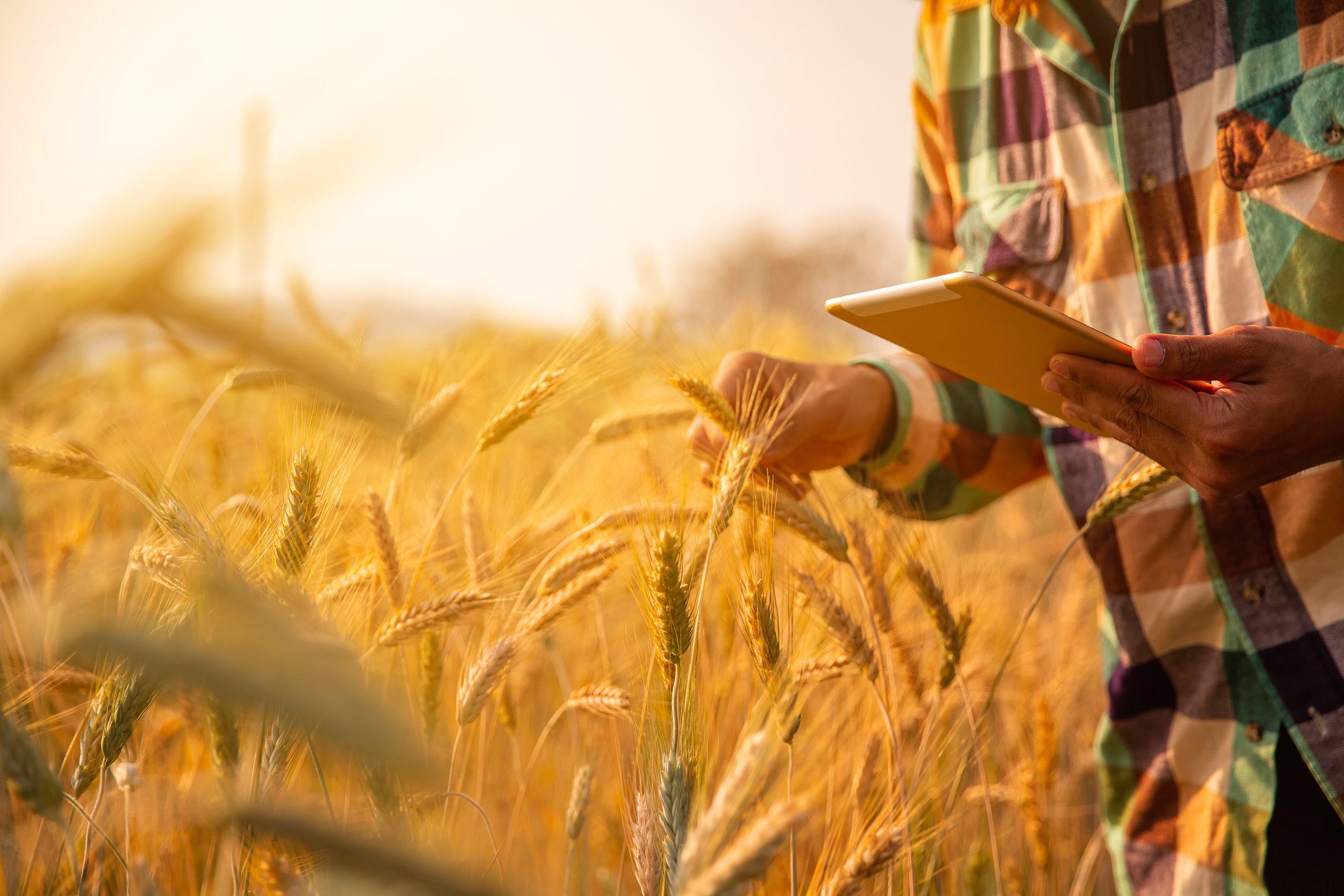“Eating its own capital”: Investing in a planet-friendly food system
- Like
- Digg
- Del
- Tumblr
- VKontakte
- Buffer
- Love This
- Odnoklassniki
- Meneame
- Blogger
- Amazon
- Yahoo Mail
- Gmail
- AOL
- Newsvine
- HackerNews
- Evernote
- MySpace
- Mail.ru
- Viadeo
- Line
- Comments
- Yummly
- SMS
- Viber
- Telegram
- Subscribe
- Skype
- Facebook Messenger
- Kakao
- LiveJournal
- Yammer
- Edgar
- Fintel
- Mix
- Instapaper
- Copy Link
Posted: 10 February 2023 | Grace Galler | No comments yet
New Food’s Grace Galler investigates why investors may be apprehensive to invest in food systems and how their impact could make a monumental difference when it comes to food insecurity and climate change.


The Food Foundation’s “Putting Money On The Menu” event opened up a wealth of discussion regarding the impact investors could make to a global food system that arguably needs changes.
Currently, 2.5 billion tonnes of food is wasted each year. That’s the equivalent of 40 percent of all food. If this figure wasn’t startling enough, one of the speakers at the event put it into perspective with a metaphor: “you couldn’t invest in a car business that scraps four of every 10 cars.”
But what can be done to encourage investors to put their money where their mouth in when it comes to supporting the food industry? Well, according to numerous speakers at the event, it’s important to provide them with data and ask them to question companies about exactly what is going on in each step of their supply chain.
Investing in longevity
Branding the world’s current food system as “very fragile”, Tim Benton, Research Director of Emerging Risks at Chatham House, explained that there is an ongoing “cheaper food paradigm”.
“There are more calories available than nutrition, we have more meat than livestock. We know extremes are going up, global interconnectedness is going up, global interconnected risks are going up,” explained Benton.
Suggesting that the food industry and officials need to start thinking about longevity rather than temporary solutions, Benton announced: “All of our incentives are wrong. We need to think about how we can work with politicians to get market incentives right.”
Putting money where sustainability is
A word used repeatedly at the event was “sustainability”. Uttered in the majority of speakers presentations, it was clear that for food systems to give back to the planet, they need to be sustainable.
Putting one country under the microscope, Rune-Christoffer Dragsdahl, Secretary General of Dansk, Vegetarisk, Forning (DVK), highlighted the Danish Green Deal.
According to the European Commission, Denmark has set an “ambitious” GHG emissions reduction target of 70 percent by 2030 (relative to the 1990 level), and climate neutrality by 2050.
However, to achieve this target, the European Commission has noted that “significant investments and reforms across the economy” will be needed.
Highlighting the investment taking place in Denmark, Dragsdahl explained that there had been an international funding of approximately €100 million, specifically targeting plant-based foods.
“There was a decision to make a national action plan for plant-based foods. It was supported by nine out of 10 parties in parliament and several parties made this a key priority,” said Dragsdahl.
According to the University of Bath, when compared to beef burgers, plant-based burgers are associated with up to 98 percent less greenhouse gas emissions. What’s more, the report noted that plant-based products, typically use less agricultural land, less water and cause less pollution than animal products.
In fact, researchers have found that plant based products tend to have better nutritional profiles when compared to farm bred products, with one study finding that that 40 percent of conventional meat products were classified as ‘less healthy’ compared to just 14 percent of plant-based alternatives based on the UK’s Nutrient Profiling Model.
Thus, with investment already happening in the world to facilitate shifts in our food system, what else can be done?
While Dragsdahl argued that “education and networking matters” when it comes to getting investors clued up, Dr Martin Buttle, Better Work Lead at CCLA Investment Management said that providing “data for investors is important” so that they can understand exactly what food businesses are doing when it comes to making a positive change to the planet.
Agreeing with Buttle, Sophie Lawrence, Stewardship and Engagement Lead at Rathbone Greenbank, said that “from an investor’s perspective, [data] is so important.”
“The benefit we have as investors is the bird eye view, being able to see the long term risks we are facing.”


Lawrence noted that investors have a “birds eye view” of the food industry, meaning that they can see the “long term risks”.
Lawrence optimistically stated that she thinks “we are getting better at gaging the systematic risks” meaning that investors can weigh up the positives and potential problems of investing in food systems.
However, with a “moral and social element to act”, Lawrence explained to the audience that she thinks that there needs to be more engagement with government officials and minsters to “decide what the right metrics are for health, animal welfare and the environment”.
Investment: deal or no deal?
According to the International Institute for Sustainable Development (IISD), in order to end poverty and hunger by 2030, the world needs $265 billion more in annual investments.
But with the world facing numerous challenges such as COVID-19, the war in Ukraine, food inflation and the cost of living crisis, what do food investors really need to know before they make commitments?
Speaking at the event, Peter Elwin, Director of Fixed Income and Head of the Food & Land Use Programme, explained: “There is a need to help investors understand that we need to do more with less. We need to feed more people and do less harm to the planet.”
Although this statement seems simple, Elwin went on to note that the food industry also needs to focus on protecting eco-systems, improving the food production process and allow for more sustainable consumption”.
Offering a word of advice to investors, Elwin said that it was important to invest in “responsible supply chains”, ones that produce food with less pollution and have traceability.


In order to make planet friendly investments, Elwin explained that investors should research “responsible supply chains”.
According to Elwin, while “being an investor is not going to change consumer behaviour, they can inform companies” to make greener choices in all parts in their production process.
It seems to be now or never when it comes to food investment, especially as many companies are standing in solidarity with a world climate change goal of limiting the Earth’s warming to 1.5 degrees.
However, Rachel Crossley, Head of Stewardship Europe BNP Paribas and Asset Management claimed that “a 1.5 degree future is impossible to achieve without food system transformation.” Thus, with many hoping that there are willing investors waiting in the wings to step up and make a difference, in order for them to understand just how significant their role could be, they simply need to have “conversations about how businesses are aligning with long term [climate change] goals”.
However, with Elwin claiming that the current food system is “eating its own capital”, it was overt at the event that changes need to be made and money needs to be used effectively to shift the spotlight from short term fixes to long term, sustainable strategies across the food industry.
Related topics
Food Security, Recruitment & workforce, Regulation & Legislation, Research & development, retail, Supermarket, Supply chain, Trade & Economy, World Food
Related organisations
BNP, CCLA, Chatham House, Dansk, European Commission, Feedback projects, Food & Land Use Programme, Forning (DVK), International Institute for Sustainable Development (IISD), Rathbone Greenbank, University of Bath, Vegetarisk
Related regions
Related people
Martin Bowman, Peter Elwin, Rachel Crossley, Rune-Christoffer Dragsdahl, Sophie Lawrence









